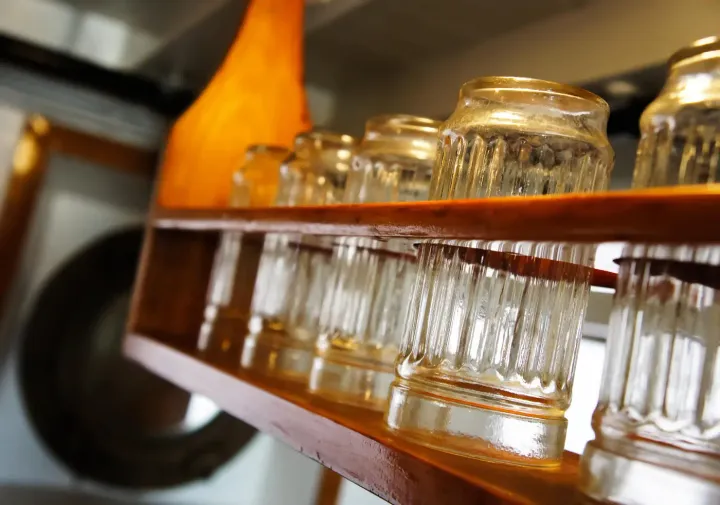Want to know what the best material is for your boat's hull? Read on! We have all the answers you need.
Building a new boat or repairing one in time for the sailing or fishing season is seen as a favourable pastime by many sea lovers. Whether you're a seasoned veteran or beginning your boat-building journey, one of the most important factors to consider is what material to build your hull from.
Materials such as aluminum and fiberglass are generally considered the best when building a boat hull. Both of these materials are incredibly stable, and aluminum is unmatched in weight to strength. In comparison, fiberglass does an excellent job of taking care of itself and requires less upkeep than most materials.
This article will discuss what the best material is for a boat hull. So keep reading! We have everything you need to know about the best materials to utilize for your boat hull.
The Best Material For Boat Hulls
There are various factors to consider when building or renovating a boat, and one of the most important is what material you will use for the hull. Numerous materials can be used, such as wood, steel, aluminum, and fiberglass, but which is the best?
While wood has been used on boat hulls for centuries, and steel became one of the most important materials during the industrial revolution, both of these materials have taken a back seat in modern times. Fiberglass and aluminum have taken their place as the best materials utilized for boat hulls.
Why Aluminium Or Fibreglass?
So, when it comes to revamping your boat or building one from scratch, most people will now generally agree that aluminum or fiberglass are excellent choices for boat hulls, and there are numerous reasons for this.
Firstly, both aluminum and fiberglass are incredibly stable when built correctly and will typically not deteriorate like wood or steel as time passes. On top of this, both materials can be quickly inspected before purchase to ensure there are no defects in the material.
But when it comes to aluminum or fiberglass, is there one or the other a better choice? We will look at a list of the benefits of both below:
Benefits Of Fibreglass
Fiberglass is an excellent choice for boats that will spend a reasonable amount of time far from home, as they require much less upkeep than materials such as wood and steel. So even if you're not willing to learn the basics of aluminum upkeep, you can get away by opting for a fiberglass hull.
On top of this, as fiberglass hulls generally weigh more than aluminum hulls, they will have an advantage when it comes to seakeeping abilities and stability. More weight means that the hull will take less damage on rougher waves and won't get buffeted easily by harsh winds.
The Benefits Of Aluminium
Aluminum is one of the most versatile materials that one can utilize for any project, and this carries over into boat building. No material on this list can match the weight-to-strength that aluminum has, its stiffness, durability, and the fact that it can perform like this for decades.
Even when compared to other metals, such as steel, it requires much less maintenance resulting in one of the best materials you can use for your boat's hull. All of these reasons indicate why most experienced sailors will use aluminum for both their hull and their boat.
While it seems there is nothing but benefits from using steel on your boat's hull, a few things must be considered. Aluminum hulls must be painted regularly to ensure that it keeps their excellent protective layer, and this can be expensive.
So, if you decide to go with aluminum, you'll have to keep an eye on bubbling paint. If you stay on top of your aluminum paint, the boat will hold up against the elements, UV damage, and corrosion for decades.
So, Fibreglass Or Aluminium?
So, when it comes down to choosing fiberglass or aluminum for your boat's hull, both are considered excellent choices. Fiberglass certainly won't corrode much like aluminum if it's mistreated, and it's incredibly easy to take care of.
Aluminum, on the other hand, is exceptionally durable and strong and will withstand various impacts much better than its fiberglass counterparts. A severe impact would likely crack a fiberglass boat would cause gelcoat damage, whereas it would generally only result in a scratch or minor dent on an aluminum boat.
Should You Avoid Steel And Wood
Steel and wood boat hulls have been used for centuries, and while they can certainly make an adequate boat hull, there are various reasons why they don't quite compare to materials such as aluminum and fiberglass.
Both wood and steel require an extraordinary amount of upkeep, and if left to their own devices, wood will rot rapidly, and steel will simply turn into a pile of iron oxide. While they were once used extensively for hulls, in modern times, there are just better materials available.
If you're someone who is both meticulous and an excellent woodworker, who has the time to carefully inspect and care for a hull made of wood, then it may be the correct choice. However, not everyone is a specialist in this regard and thus, sticking to aluminum or fiberglass is a better idea.
What Material Is Best For Rough Water?
When it comes to deciding what material you'll use on your boat's hull, various things should be considered, such as what's the best hull for rough water if you plan to take your boat out during harsher weather patterns.
A fiberglass hull is said to perform better in rough water as it is heavier and can haul more weight, but aluminum has around ten times the strength of a fiberglass hull. So if you have a larger boat, you may want to opt for fiberglass in this instance, but if your boat is small and carries little to no weight, aluminum is the best option.
Conclusion
So, now you know that if you're deciding on fixing up an old boat or looking to purchase a new one, you'll want to ensure that the hull is made from either aluminum or fiberglass.
As we've shown in this article, both of these materials have their pros and cons; however, we would recommend aluminum over fiberglass due to its strength and durability.



